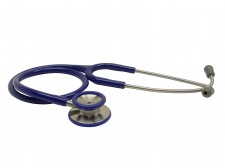 A group of researchers led by Dr. Vinay Prasad of the National Cancer Institute reviewed over 1,300 articles published in the New England Journal of Medicine over the previous decade, seeking the degree of validity of various medical practices published in that esteemed journal. The goal of the authors was to see how many of the studies assessed current medical practice, and to what extent those standards of care were found to still be valid. They published their results in an article entitled "A Decade of Reversal: An Analysis of 146 Contradicted Medical Practices."
A group of researchers led by Dr. Vinay Prasad of the National Cancer Institute reviewed over 1,300 articles published in the New England Journal of Medicine over the previous decade, seeking the degree of validity of various medical practices published in that esteemed journal. The goal of the authors was to see how many of the studies assessed current medical practice, and to what extent those standards of care were found to still be valid. They published their results in an article entitled "A Decade of Reversal: An Analysis of 146 Contradicted Medical Practices."
The results were disconcerting, at best. First of all, they found that only about one-quarter of the articles addressed ongoing/current practices most of the studies dealt with a new approach While the next breakthrough is surely worth pursuing, knowing whether what we are currently doing is right or wrong is equally crucial for sound patient care, said Dr. Prasad in an interview.
In fact, of the 363 articles that did test current, accepted medical practice, the authors found only 138, or 38 percent, were verified, while 146 (40 percent) were found to be ineffective (another 79 practices, 22 percent, were inconclusive). Some of the key examples of what the article deems medical reversals include: coronary artery stenting for stable CAD; routine use of pulmonary artery catheters for monitoring fluid balance in patients in shock; and hormone therapy to prevent CAD in older women. Other surprising unsupported practices involved diabetes care and treating kids with ear infections, among many others.
An editorial in the same journal by well-known skeptic Dr. John Ioannidis of Stanford looked at the glass as half-full: He perceived these reversals as opportunities for the astute clinician to learn from these seemingly disappointing results to help doctors curtail harms to patients and costs to the healthcare system.


